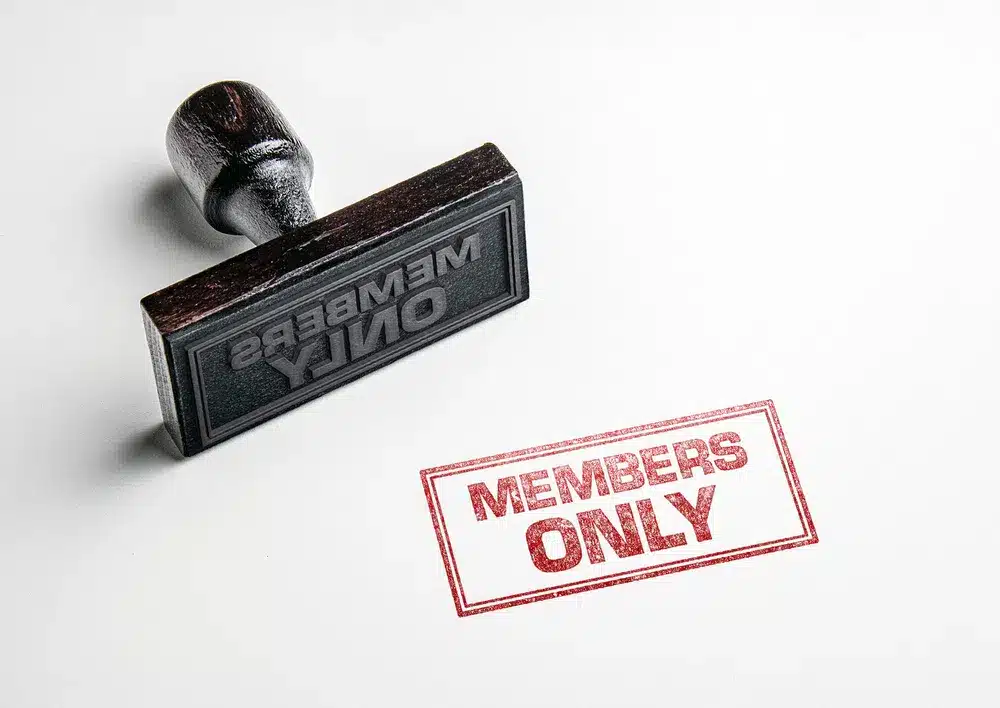Texas Private Clubs - Overview of Forming TABC Private Club
In 1919 the Volstead Act -which is commonly known as prohibition- was enacted (and became effective in 1920) at the federal level. The Volstead Act was difficult to enforce and led to an increase in illegal alcohol production and sales or “bootlegging” around the United States. This in turn led to a rise in violence and other crimes and the proliferation of underground “speakeasies.” By the end of the 1920’s, it was apparent that the prohibition of alcohol sales and production was not working.
In 1933, congress repealed the Volstead Act and gave each state the ability to decide how to regulate the sale and production of alcohol its borders. The Texas Liquor Control Board was established in 1935 by the Texas Legislature. The Texas Liquor Control Board name changed to the Texas Alcoholic Beverage Commission (TABC) in 1970.
After the repeal of the Volstead Act, The Texas Legislature did not want a blanket, uniform law across Texas allowing alcohol sales, so it gave each city and county the ability to decide which types of alcohol sales would be allowed in their communities through local option elections.
The TABC annual report from 1939 indicates there were 117 totally DRY counties (meaning that no alcoholic beverages could be produced or sold) in Texas at that time. The other counties/cities that did have successful local option elections in that time period limited what alcoholic beverages were available, and most, if not all, of these only allowed Texans to purchase beer for off-premise consumption – no spirits or wine.
It still was not legal to sit down in a restaurant or bar and have a drink containing distilled spirits until 1961 when the Texas Legislature enacted the Private Club Act, which exempted associations from the general “sale” of alcoholic beverages containing spirits for on premise consumption and allowed private clubs that hold a TABC permit to serve alcohol in dry areas.
Then In 1968, legislation was passed allowing “liquor by the drink” under a mixed beverage permit. However, local municipalities still have to have a successful local option election allowing “liquor by the drink” before Texas businesses can sell spirits for on-premise consumption area under a mixed beverage permit.
As time goes on, more and more cities and counties have held local option elections to allow for the sale of mixed beverages in bars and restaurants. According to the TABC’s 2020 annual report on dry v. wet counties, there are only 5 entirely DRY counties in the state; Borden, Hemphill, Kent, Roberts and Throckmorton.
Why, if there are only five remaining totally DRY counties in the state, might you still need a private club permit? Because some counties and cities are still partially dry and a private club may still be the best option. For example, some areas of the state, by local option election, require that businesses be a restaurant to qualify to hold a Mixed Beverage Permit, meaning they have to also hold a TABC Food and Beverage Certificate. Businesses can qualify for a TABC Food and Beverage Certificate in basically one of two ways:
The business has commercial cooking equipment (which isn’t defined but could mean a full commercial kitchen) and operates the food service anytime alcohol is sold; or
The business has permanent food service – a lesser burden than having commercial cooking equipment, is able to keep alcohol sales at or below 60% of the total sales generated at the premise and operates food service anytime alcohol is sold.
Businesses may not meet the local health department requirements for restaurants or food handling, they may not have the money required to invest in this type of commercial cooking equipment, may not be able to maintain under 60% alcohol revenues or they may just do not want to run a restaurant at all. The above situations are examples of when a private club permit would probably be the route to go.
Who owns the alcoholic beverages in a private club? The members do. The private club’s assets are not owned by the business owner, but by the members of the private club. Private clubs typically have two entities involved in the business at the location, a for-profit entity (commonly referred to as the managing entity) and a nonprofit entity that operates the private club. A Private Club Permit must be either be held by a nonprofit corporation or an unincorporated association of persons. The managing entity typically received sublease and management fees from the private club.
The members of the private club elect officers to conduct business on the private club’s behalf, and also elect a membership committee to vote on whether to accept temporary members and permanent members. There are services a private club can use to electronically store membership records and to efficiently transition temporary members into permanent members of the private club. A private club does not actually sell alcohol to its members but recoups the money for the alcohol by charging the members of the private club an alcohol replenishment fee.
There are many other reporting requirements and rules Texas Private Clubs must abide by. For example, temporary members of a private club may only bring up to three guests to the club and the guests must remain in the temporary member’s presence while at the club. Also, a temporary member may not use the private club’s services for more than three days per invitation.
Getting Private Club Permit issued by the TABC has many steps, and quite a bit paperwork needs to be taken care of before a business can even start the TABC application process. You will need an alcohol attorney with experience in forming private clubs to draft the required documents, such as the by laws, rules and regulations, management agreement, sublease agreement, minutes, promissory note, etc.
Here are just a few (and certainly not all) of steps to form a private club before beginning the process to apply for the Private Club Permit with the TABC:
Forming the non-profit entity;
Collecting either 50 or 100 Charter Member applications, depending on where the Charter Members reside;
Drafting the necessary documents and agreements needed for the private club to operate in conjunction with the managing entity; and
Hold the private club meeting with minutes where the required documents are adopted.
If you need assistance with forming a private club in Texas, give us a call at 817-562-9648.

A private club is an association of persons for some common purpose. The law allows a private club to serve and offer to serve alcohol to its members, even in a dry area, as long as it holds a valid private club permit from the Texas Alcoholic Beverage Commission (“TABC”). Any club that does not hold a TABC permit is prohibited by law from serving or offering to serve alcohol to its members.
The Private Club Act was enacted in 1961, which exempted associations from the general prohibition against the “sale” of alcoholic beverages containing distilled spirits for on-premise consumption, provided they obtained a private club permit from the Liquor Control Board (which later became the Texas Alcoholic Beverage Commission or “TABC” for short). Prior to the enactment of the private club legislation, bars, lounges, and taverns which were known as “open saloons”, were prohibited from operating under the Texas State Constitution and Liquor Control Act. Associations benefiting from a private club permit included country clubs, fraternities and lodges such as Eagles, Elks, Freemasons, Moose, and Knights of Columbus, golf clubs, social clubs, and veteran’s organizations, such as American Legion and Veterans of Foreign Wars.Of course, this wasn’t limited to well-known and established organizations either. Bars, lounges and taverns could also be eligible as a social drinking club. Under the Private Club Act, no “sale” of alcoholic beverages occurs under the Texas Alcoholic Beverage Code or the State Constitution, if a member of a private club holding a TABC private club permit is served alcohol for service charge or fee. Alcohol is common property owned by members of the private club. Members contribute money to a pool system through a service charge and or other fees, which in turn is used to purchase alcohol for the use and enjoyment of all private club members. While this may sound very simple in principle, there are complex laws and regulations governing membership and pool system which have to be complied with. Following the 1970 repeal of constitutional prohibition against open saloons, the legislature passed local option elections laws. Justice precincts, counties and cities were given local control over the sale, service, and distribution of alcoholic beverages at the retail level. This introduced a new category of permits such as a Mixed Beverage Permit (MB), among others, which made it simpler and easier for businesses to offer alcohol service located in wet areas.
Communication via this website does not establish an attorney-client relationship. We cannot, therefore, agree to maintain the confidentiality of communications sent via this website. Do not send any information about a legal problem, as our professional obligations require us to determine whether there are any actual or potential conflicts with existing or former clients before accepting an engagement from a new client.
